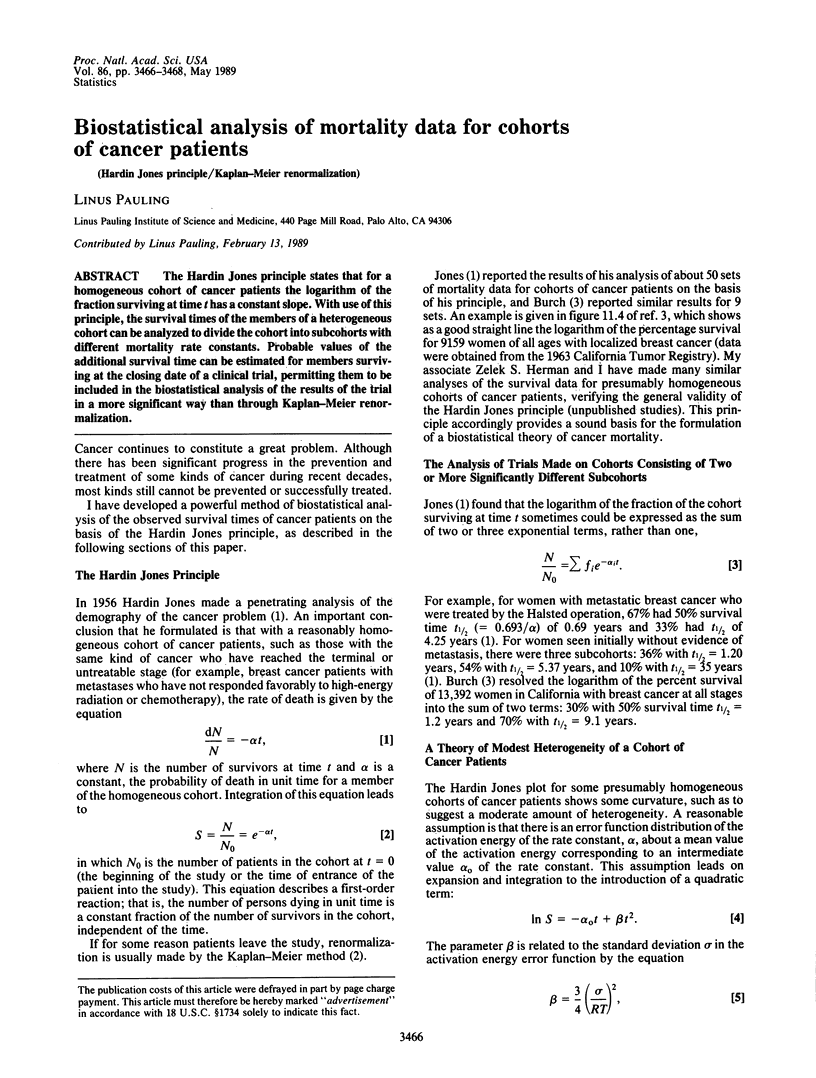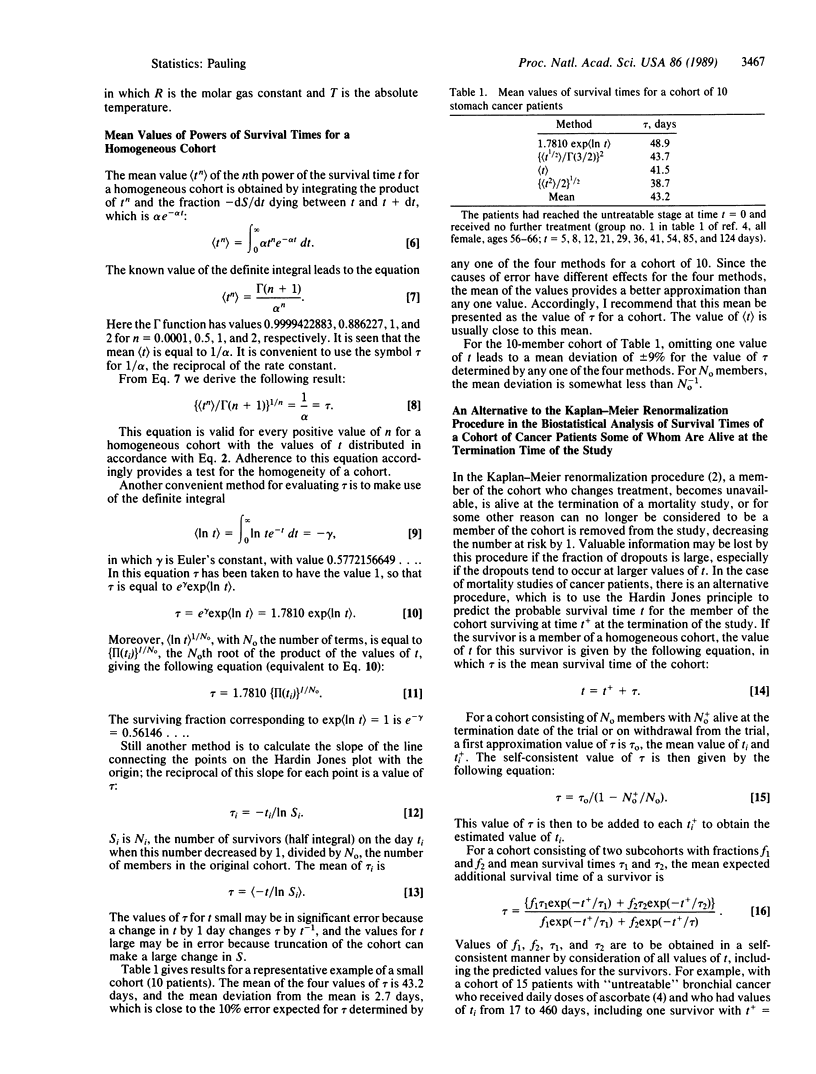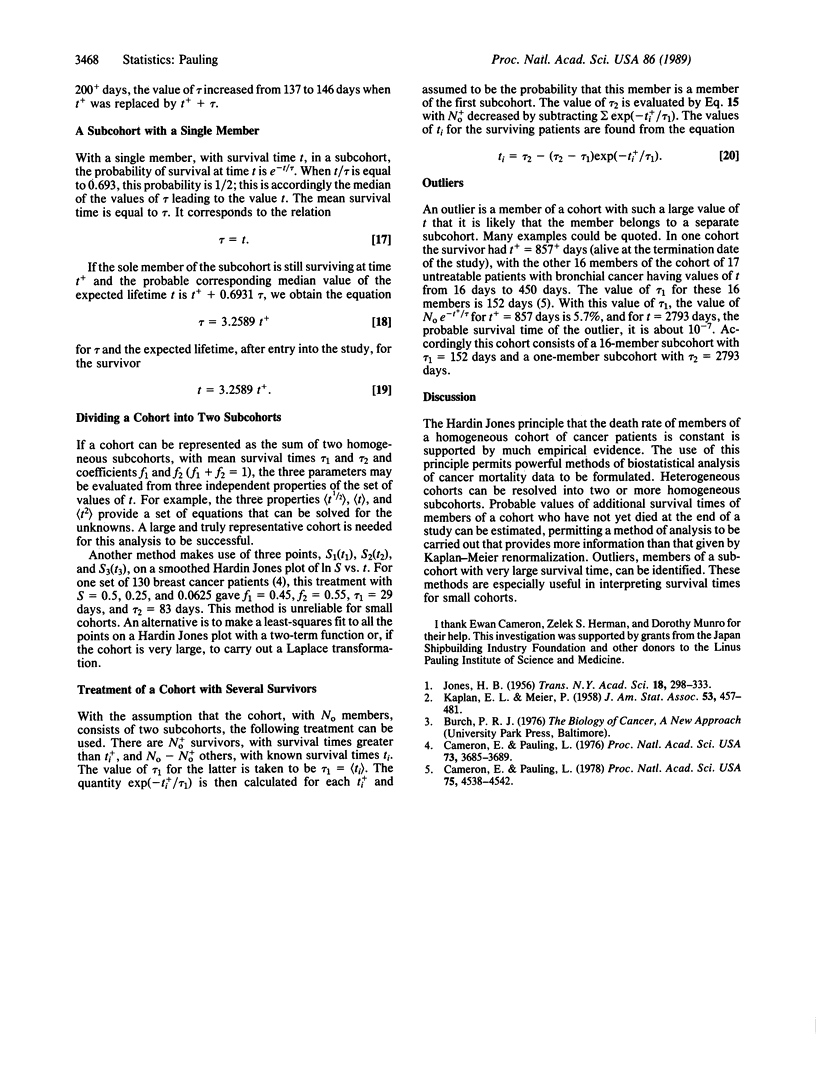Abstract
The Hardin Jones principle states that for a homogeneous cohort of cancer patients the logarithm of the fraction surviving at time t has a constant slope. With use of this principle, the survival times of the members of a heterogeneous cohort can be analyzed to divide the cohort into subcohorts with different mortality rate constants. Probable values of the additional survival time can be estimated for members surviving at the closing date of a clinical trial, permitting them to be included in the biostatistical analysis of the results of the trial in a more significant way than through Kaplan-Meier renormalization.
Full text
PDF


Selected References
These references are in PubMed. This may not be the complete list of references from this article.
- Cameron E., Pauling L. Supplemental ascorbate in the supportive treatment of cancer: Prolongation of survival times in terminal human cancer. Proc Natl Acad Sci U S A. 1976 Oct;73(10):3685–3689. doi: 10.1073/pnas.73.10.3685. [DOI] [PMC free article] [PubMed] [Google Scholar]
- Cameron E., Pauling L. Supplemental ascorbate in the supportive treatment of cancer: reevaluation of prolongation of survival times in terminal human cancer. Proc Natl Acad Sci U S A. 1978 Sep;75(9):4538–4542. doi: 10.1073/pnas.75.9.4538. [DOI] [PMC free article] [PubMed] [Google Scholar]
- JONES H. B. Demographic consideration of the cancer problem. Trans N Y Acad Sci. 1956 Feb;18(4):298–333. doi: 10.1111/j.2164-0947.1956.tb00453.x. [DOI] [PubMed] [Google Scholar]


